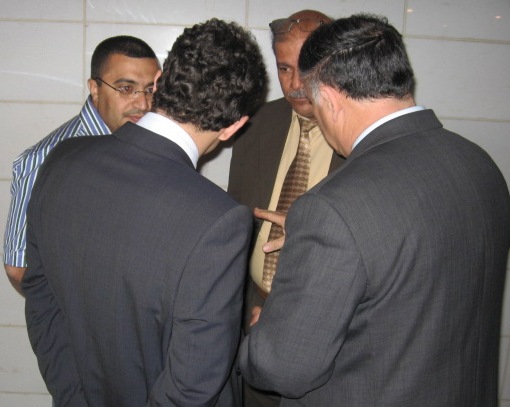
Eight local and national government officials from Romania visited Iraq in April during a “reverse study tour” facilitated by ICMA as part of the third phase of the Iraq Community Action Program (CAP III). The purpose of the visit was to give Iraqi local council members and ICMA training staff an opportunity to learn about the challenges accompanying decentralization from officials who had experienced a similar shift in Romania.
“We had more questions than we could handle, so questions spilled over to the coffee break area. The overworked translators got shanghaied into working the coffee breaks too, but that wasn't enough,” said C. Scott Johnson, deputy chief of party/local governance advisor, describing the exchange among participants speaking in three languages—English, Arabic, and Romanian. “Coffee breaks were mostly occupied by searches for linguistic talent.”
Presenters discussed budgeting and financial planning, citizen input, the creation and evolution of professional local government associations, training, the role of international donor agencies, and decentralization of service delivery, using public health as an example.
The objectives of the study tour were:
- To demonstrate that a local government situation similar to that of Iraq can be transformed to one vastly superior and effective at providing services to the public in a reasonable period of time
- To create the aspiration to do likewise in the local council participants and in the CAP III staff.
Iraqi participants expressed an interest in strengthening an informal association that is emerging among local council members. Romanian participants offered to partner with this new group.
ICMA is a subcontractor to International Relief & Development (IRD) for this portion of the CAP III program. CAP III seeks three primary objectives, or outcomes: (1) Communities better articulate their needs and mobilize resources to solve common problems; (2) local governments in CAP communities better meet the articulated needs of the community; and (3) civilian victims of conflict are assisted. ICMA’s role is to help meet the second of these objectives, primarily through training of local councils, either directly or by preparing local trainers.
New, Reduced Membership Dues
A new, reduced dues rate is available for CAOs/ACAOs, along with additional discounts for those in smaller communities, has been implemented. Learn more and be sure to join or renew today!
